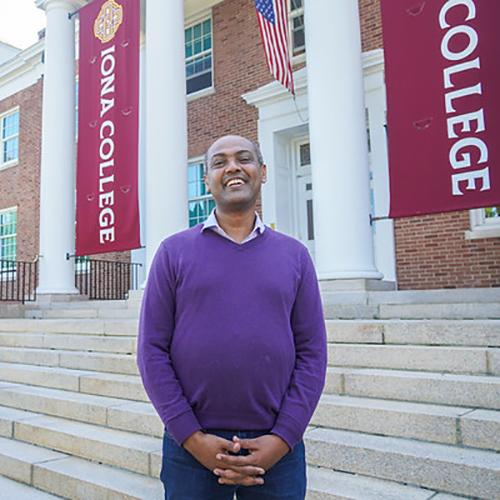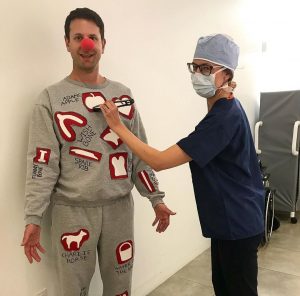Iona professor studying global migration trends with team of researchers

Dr. Derese Kassa is partaking in research abroad project that was granted $2.4 million dollars.
October 21, 2021
Professor of sociology Dr. Derese Kassa sets foot in every classroom with a story to tell. He struts in with a suit, shiny shoes, knowledge, wisdom and a few lecture slides. Kassa teaches his students with simplicity but gauges impactful lessons that will soon be noticed on a global scale.
In September, Kassa was brought onto the project “Urban Sanctuary, Migrant Solidarity, and Hospitality in Global Perspective” to be a senior research collaborator. This project studies recent trends in global migration, and the different global responses to refugees by city governments; Kassa will focus his research within West Africa.
The Canadian Social Sciences and Humanities Research Council (SSHRC) has since granted 2.4 million dollars for this project, given its required field work with forty-five team members.
Dr. Harald Bauder, professor in the Geography & Environmental Studies Department at Ryerson University in Toronto, who created this research project, showed interest in Kassa after reading his book, “Refugee Spaces in Urban Citizenship.”
One afternoon Kassa was on a Google binge reading articles on urbanization and accidentally found one of Bauder’s articles where he had quoted the book at length. Kassa then emailed Bauder to thank him, and so the relationship ignited.
Through his research, Kassa has discovered global migration shifts where more immigrants now leave their homes due to natural calamities, when they once left for political upheavals. Kassa is also studying how local governments provide protection and refuge for undocumented immigrants.
As an immigrant himself, Kassa’s heartstrings will always play tug-of-war between America and his home-country, Ethiopia. Like most immigrants or children of immigrants who dwell between two cultures, Kassa is sometimes torn between two contrasting societies.
“Sometimes I feel too privileged because I come from a place where a lot of people struggle to find their meals or clean water,” Kassa said. “What am I even doing to give back?”
So, during his research abroad, he intends to integrate back into Ethiopian culture and progress into intimate research that he began but never completed, given his responsibilities in America as a father and professor.
Given his accredited endeavors, Kassa has the grounds to make serious criticisms of modern activism, especially after the George Floyd murder.
“I wish I could see more activism in real-life than on social media,” Kassa said. “It’s easy to hashtag something, indulge in cancel culture, reshare, and make comments.” You wonder sometimes if the internet itself became a distraction since people channel their energy into the cyber world.”
He reflects on the activism of the 60s and the impact that the Civil Rights Movement had on America. People congregating to protest, argue, fight and boycott physically reformed the laws and lives of African Americans.
“People think they’re doing a lot just by being too vocal, but they just create an echo-channel with like-minded folks, Kassa said. “Can you connect with what you do to what you talk about?”
To flourish in both personal agendas and careers, Kassa encourages students to be well versed in their interests before networking and initiating meaningful connections. Students should always carry the mindset of being labeled the best at what you do to leave a remembrance of yourself within your field.
With a final question, Kassa asks the Gaels reading – do you want a trend, or do you want a legacy?



